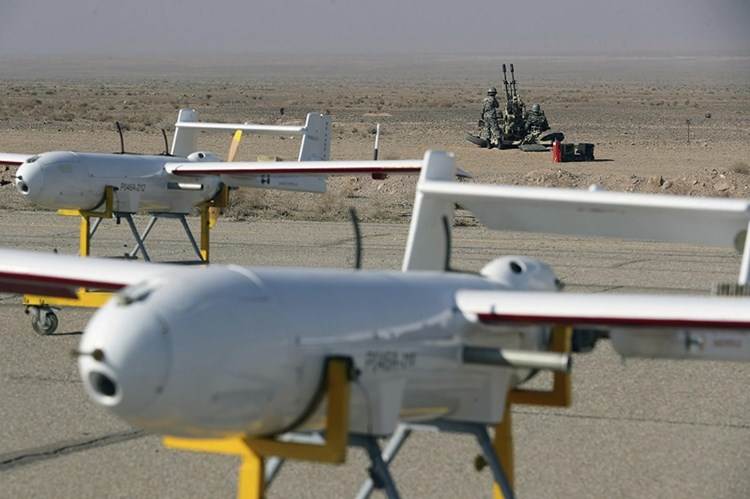Israeli Concern about Iranian Drones: Balance of Power Change
In a speech, Israeli Security Minister Benny Gantz said that "Iran carries out attacks with explosive drones through its envoys and from its territory."
-

"Israel" shows concern over Iranian drones.
The Israeli Security Minister Benny Gantz issued on Tuesday a warning at the Institute for Policy and Strategy Conference at Reichsmann University, regarding the "increasing danger" of the Iranian drones to "Israel" and the world.
The occupation's minister shed light on this threat to his regime in terms of its timing and content.
The focus on this topic comes in tandem with a propaganda campaign aiming to create incitement against Iran, by linking the upcoming nuclear deal negotiations with the drones file.
On another level, experts analyzed the impact of Iranian drones which, in their opinion, outweighs that of precision missiles, and could alter the balance of power in the Middle East.
Drones: a growing threat
In his speech, Gantz said yesterday that "Iran carries out attacks using explosive drones through its envoys as well as from its territory."
He revealed that "in February of 2018, Iran sent a drone from Syria towards "Israel," and was intercepted near 'Beit She’an', and its target, according to what we know, was terrorist organizations (meaning resistance factions) in the West Bank."
Gantz added that “one of the main Iranian threats is drones and precision weapons, that can reach strategic targets with a range of thousands of kilometers and threaten countries and international forces in the Middle East as well as countries in Europe and Africa.”
In parallel, the commander of the Israeli Air Force, Major General Amikam Norkin, said at the same conference, "The story of the drones is an issue that will intensify in the coming years and will affect the entire region."
Altering the balance of power
The Israeli minister's warning of “the escalating threat from Iranian drones,” coming close before the resumption of the Vienna nuclear negotiations, allowed the media to shed light on this case from multiple angles:
First, estimates of Israeli official sources claim that Iran aims to attack targets in the Gulf, using UAVs, as a means of pressure to feed interests related to its nuclear program.
Second, there is the plausible deniability which, according to reports, enables Iran to operate without leaving any fingerprint or triggering a military response.
Third, the strategic threat, introduced in a study issued by the Jerusalem Institute for Strategy and Security (JISS), prepared by Uzi Rubin, head of the Israel missile defense organization, sheds light on the possibility of drones becoming a first-class strategic threat to "Israel."
The study concluded that this weapon would also "alter the balance of power" if operated correctly, and is of equal value to Iranian precision missiles, if not higher.
Fourth, the media's attention in "Israel" came in parallel with the campaign of incitement launched by the Israeli political official echelon against Iran.

 3 Min Read
3 Min Read








